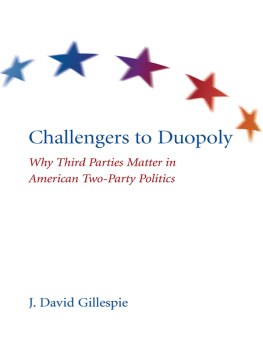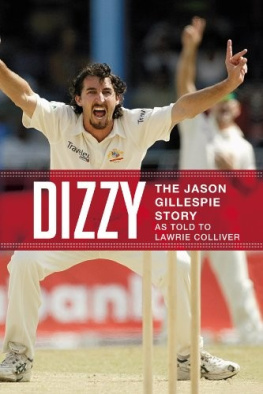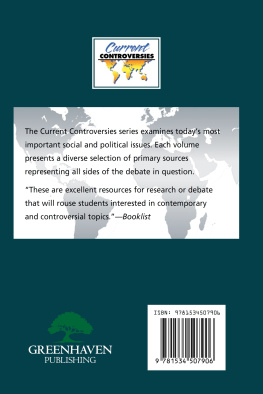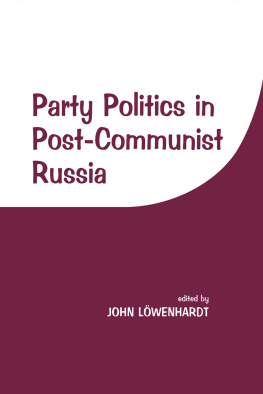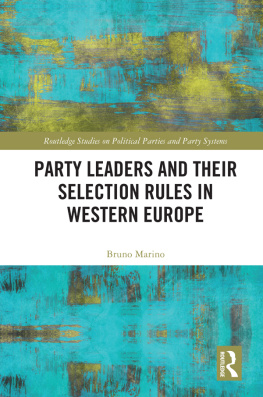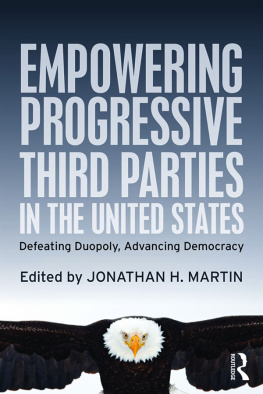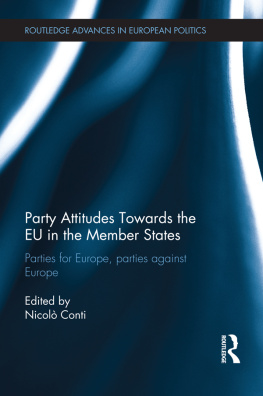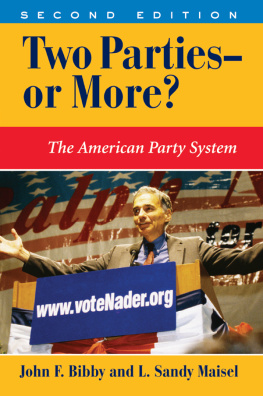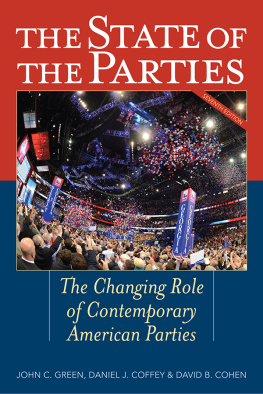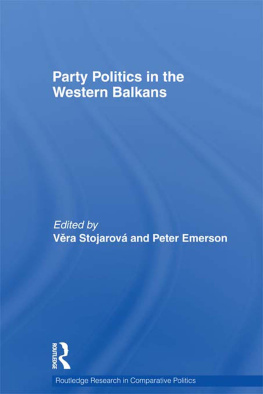2012 University of South Carolina
Cloth and paperback editions published by the University of South Carolina Press, 2012
Ebook edition published in Columbia, South Carolina,
by the University of South Carolina Press, 2013
Some of the material in this book was previously included in Politics at the Periphery: Third Parties in Two-Party America, published by the University of South Carolina Press, 1993
www.sc.edu/uscpress
22 21 20 19 18 17 16 15 14 13 10 9 8 7 6 5 4 3 2 1
The Library of Congress has cataloged the print editions as follows:
Gillespie, J. David, 1944
Challengers to duopoly : why third parties matter in American two-party politics / J. David Gillespie. 1st ed.
p. cm.
Includes bibliographical references and index.
ISBN 978-1-61117-013-9 (hardback) ISBN 978-1-61117-014-6 (pbk)
1. Third parties (United States politics)History. 2. Political participationUnited StatesHistory. 3. United StatesPolitics and government. I. Title.
JK2261G55 2012
324.273dc23
2011046340
ISBN 978-1-61117-112-9 (ebook)
Preface
Two roads diverged in a wood, and I
I took the one less traveled by.
Robert Frost, The Road Not Taken
You are entitled to know something about my approach to the topic of this book. Paraphrasing words from a chilling query from the McCarthy era, I am not now, nor have I ever been, a member of any third political party. I am interested in them all. I have been since 1967, when, as a young graduate student at Wake Forest University, I attended a university-sponsored symposium on alternative politics. Two of the speakers there were unforgettable.
Norman Thomas, then eighty-two, had carried the presidential standard of his Socialist Party in six consecutive elections from 1928 through 1948. Thomas had served as a kind of left-wing conscience during the Great Depression. Several of his party's platform planksSocial Security among themhad found their way into public policy during the New Deal era.
George Lincoln Rockwell, the founder and commander of the American Nazi Party, provoked a hostile Wake Forest audience with his racist views. Standing in front of him in silent protest was an African American football player waving a large American flag. Months later Rockwell lay dead at age forty-nine, the victim of an assassin's bullet fired by a renegade former member of Rockwell's party.
One of those symposium speeches I found instructive. The other astounded me by its bare-knuckled viciousness. I came away from them both more convinced than ever that a free marketplace of ideas is the surest approach to truth.
Hopes can inspire, but people with the impulse to step beyond major-party bounds, to craft or support third parties, should also be fortified by stiff resolve and a devotion to cause. Those taking this less-traveled road need to know the barriers they will face along the way.
Far more than a naturally evolved two-party system, the American polity has become a duopoly: a system in which the electoral route to power has been jointly engineered by Democrats and Republicans to underwrite their hegemony. They have done it by gravely disadvantaging outside challengers.
It is unsurprising that minor-party and independent candidates normally do not win elections. Given the cards that are stacked against them, what is remarkable is that they ever win them at all.
Defenders of the American party system often insist that it facilitates consensus building and promotes stable government. A look at the relationship between the Republican and Democratic parties in government during the Clinton, George W. Bush, and early Obama years may very well lead the examiner to the opposite conclusion: interparty hostility, zero-sum assumptions (save in the common project of keeping the ladder pulled up against those outsiders), and paralysis in the policy process.
Despite the infirmities they bear, third parties do matter. They have mattered over nearly two centuries in the public life of the United States. Many of the nation's most important policies and institutional innovations were third-party ideassometimes they were the common currency of many third partiesbefore either major party dared to embrace them. Among these were abolition, women's suffrage, transparency in government, popular election of senators, and child labor and wages and hours legislation. Third parties were the first to break every single de facto gender, race, and sexual orientation bar on nomination for the highest offices in the land.
Purpose and Organization
I have aimed to provide in one accessible volume a reasonably comprehensive look at third-party movementsfrom the earliest ones growing up just decades after the nation's birth to those now working as current or incipient challengers to the Republicans and Democrats. Woven into the accounts are stories of some of the men and women who took the initiative to found and lead these minor parties.
establishes the core premise about duopoly and its impact upon American politics. It also offers poll and electoral data suggesting that some opportunities have opened for third-party and independent challengers over the last twenty-five years.
The many barriers third parties face are presented in . Some of these are existential: they are because they are. Others are the invidious arrangements Republicans and Democrats have made for closure and their mutual self-protection. Minor parties are certainly among the losers; so too are the voters and their democratic freedom to choose.
focuses upon a variety of themes: the nation's party systems and their transformation over time; third-party types; and why third parties matter. The chapter carries the story of the Prohibition Party, the nation's most ancient living minor party.
The Constitution, Green, and Libertarian partiesthe leading contemporary national third-party challengersare featured in .
Chapters covers a related theme: the independent movements launched and led by John Anderson and Ross Perot, and the later initiatives by Perot and others to institutionalize their movement.
examines the involvement of women, African Americans, and Latinos in third-party movements. It also bears historical case studies of their party-building activities: the National Woman's, Black Panther, and Raza Unida parties.
Continuing doctrinal partiesthe Socialists and Communists and the Neo-Nazisare featured in chapters .
glimpses state/local significant others: third parties important within the domain of their communities or states but unwilling or unable to extend beyond those territorial bounds.
The concluding provides a brief retrospective of the third-party past, along with some commentary and projection about present and future.
What you read may prod your interest in exploring the topic further. If so, you will find many worthwhile reading choices in the Suggestions for Further Reading section at the close of this book.
Acknowledgments
Over many years I have sat and talked with leaders and activists of third parties covering the ideological gamut. Many of these encounters occurred at party headquarters or convention gatherings. I have met Libertarians, Greens, Reform Party folks, and independents outside federal courtrooms where they were gathered to challenge ballot-access or other duopolistic barriers.
Some of my interviewees invited me home to talk. I spent a summer morning in Elmer Benson's rustic Lake Superior cabin listening as the ex-governor told fascinating tales of Depression-era Minnesota farmer-labor politics. The leader of a party revering the memory of Mao Zedong met me in a New York coffee shop. He said he was very sorry we could not go to his home, but his wife had come down with the flu!

